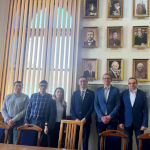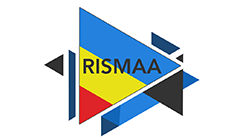Assoc. prof. dr. Danny Dig, University of Colorado at Boulder, USA: Growth Lessons from the Refactoring Research Community
 În cadrul Seminarului de Inovare și Dezvoltare din cadrul Departamentului de Informatică, assoc.prof. dr. Danny Dig va susține în data de 7.07.2022, ora 15.00, prelegerea cu titlul:
În cadrul Seminarului de Inovare și Dezvoltare din cadrul Departamentului de Informatică, assoc.prof. dr. Danny Dig va susține în data de 7.07.2022, ora 15.00, prelegerea cu titlul:
Growth Lessons from the Refactoring Research Community.
Evenimentul se va desfășura in format fizic (sala C335) si online începând cu ora 15.00 pe platforma Microsoft Teams. Link-ul de acces este disponibil la această adresă.
Abstract: Refactoring is an important software engineering practice for changing the internal structure of software to make it easier to understand and modify without changing its observable behavior. In the last decade, refactoring research has seen exponential growth. I will attempt to map this vast landscape and the advances that the community has made by answering questions such as who does what, why, and how. I will muse on some of the factors contributing to the growth of the field (e.g.,refactoring the definition of refactoring), the adoption of research into industry, and the lessons that we are learning along this journey.
Our community is at a crossroads now. Despite the extraordinary rise in popularity of Python-based ML systems, they do not benefit from the advances in the refactoring field. The science and tooling for developing and evolving ML code-bases is significantly behind. To reduce this gap, we conducted the first and most fine-grained study on code change patterns in a diverse corpus of 1000 top-rated ML systems. We triangulated our findings with surveys of hundreds of ML engineers and reveal four major trends of how ML engineers evolve their code. We launch a call to action for researchers, tool builders, ML library vendors, developers, and educators. This will inspire and equip you so that you can make a difference, with people who make a difference, at a time when it makes a difference. I will conclude with the lessons we are learning from working with industry, and invite colleagues in academia and students to join forces to make a lasting impact through our recently-launched Center on Intelligence for IoT systems: http://ppicenter.org
Biography: Danny Dig is a Romanian associate professor in CS at University of Colorado at Boulder, and an adjunct professor at University of Illinois at Urbana-Champaign. He enjoys doing research in Software Engineering, with a focus on interactive program analysis and transformations that improve programmer productivity and software quality. He successfully pioneered the field of refactoring in cutting-edge domains including mobile, concurrency and parallelism, component-based, testing, and end-user programming. He earned his Ph.D. from the University of Illinois at Urbana-Champaign where his research won the best Ph.D. dissertation award, and the First Prize at the ACM Student Research Competition Grand Finals. He did a postdoc at MIT. He (co-)authored 60+ journal and conference papers that appeared in top places in SE/PL. His group's research was recognized with 9 paper awards at the flagship conferences in SE, 4 award runner-ups, and 1 most influential paper award. He received the NSF CAREER award, the Google Faculty Research Award (twice), and the Microsoft SE Innovation Award (twice). With his students, they released dozens of software systems. Some of these are shipping with the official release of the popular Eclipse, NetBeans, Android Studio, and Visual Studio development environments which are used daily by millions of developers. His group's research is funded by NSF, Boeing, IBM, Intel, Google, Microsoft, NEC, and Trimble. He travels all over the world to inspire and equip the next generation of technical leaders.

















